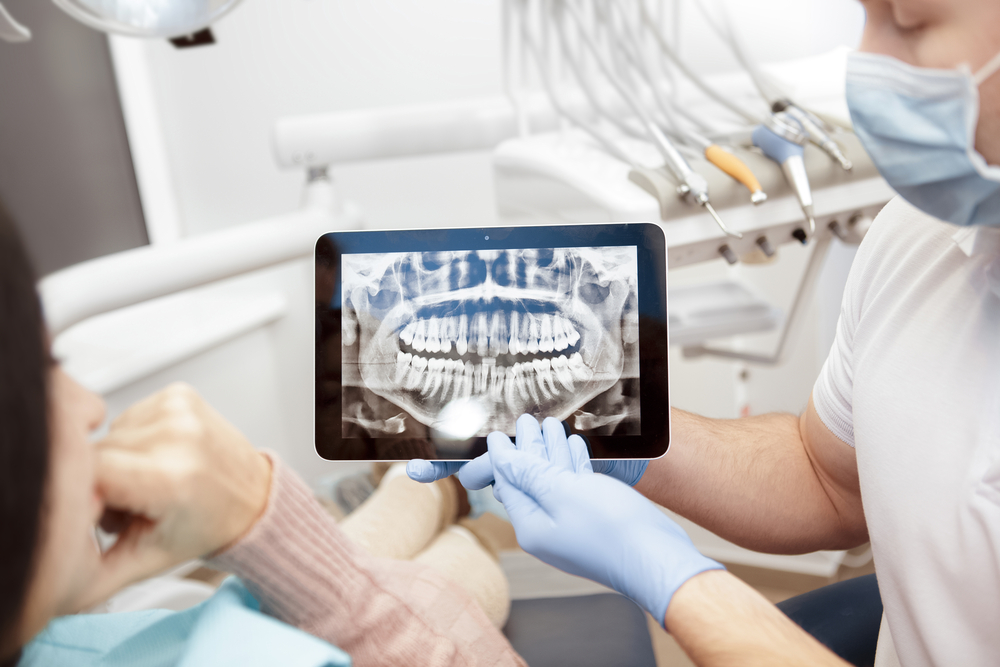If you smoke cigarettes or chew tobacco, you may want to know how tobacco can affect your oral health in a guide brought to you by Altoona Smiles for Oral Cancer Month.
How Does Smoking Impact Your Teeth, Gums, And Oral Health?
- Gum disease. Smokers have a higher risk of gum disease compared to non-smokers. A common sign of periodontal disease is bleeding gums.
- Tooth decay. Smoking increases the buildup of plaque and tartar in teeth.
- Tooth loss. Studies show both men and women who smoke are more likely to lose teeth that otherwise could be kept healthy.
- Loss of bone in the jaw.
- Bad breath, or halitosis. It can also be a perpetual bad taste in one’s mouth.
- Tooth discoloration. Smoking can lead to the yellowing or staining of teeth.
- Decreased taste.
- Poor healing after tooth removal or mouth and gum surgery.
- Smoker’s keratosis. This is the whitening of the soft tissue in one’s mouth, caused by smoking. This often appear similar to…
- Oral cancer.
What Is Cancer?
Cancer is a disease in which abnormal cells grow uncontrollably, spread to other parts of the body, and destroy body tissue. Cancer can start anywhere among the trillions of cells in the human body. Normally, healthy human cells grow and multiply to form healthy new cells as the body needs them. These new cells replace old cells that become damaged and die.
When abnormal or damaged cells grow and multiply when they shouldn’t, these cells may form tumors. Tumors are lumps of tissue. Some tumors are benign, which means harmless. Other tumors are cancerous, also called malignant tumors. While benign tumors do not spread and usually do not grow back once removed, malignant tumors can spread into nearby tissues. The process by which cancerous tumors invade nearby body tissue and travel further in the body is called metastasis. Cancers of most parts of the body form solid tumors, but leukemia, or cancers of the blood, do not. (It is also worth noting that benign tumors of a certain size, or in certain parts of the body such as the brain, while not cancerous, should be removed to prevent serious health issues.)
Cancer is potentially fatal. It is a leading cause of death worldwide, accounting for nearly 1 in 6 deaths in 2020. When cancer cells develop and spread, they disturb proper organ function, potentially resulting in a reduced oxygen supply and a buildup of waste products. The impairment of vital organ function can lead to death. Fatality rates depend largely on the type of cancer and how much it has spread. With prompt care, cancer can be successfully treated.
What Is The Link Between Smoking And Chewing Tobacco And Oral Cancer?
Research shows that tobacco use is linked to an increased risk of cancer. According to the American Lung Association, smoking tobacco cigarettes is the cause of 90% of all lung cancers. Compared to non-smokers, smokers are also at a 10 times higher risk for oral cancer. In addition to lung and oral cancer, twelve other types of cancer can be linked to smoking cigarettes, including cancer of the larynx (voice box).
While chewing tobacco and snuff are considered smokeless tobacco products, these vices can cause cancer in the cheek, gum, and lips–wherever tobacco is held in the mouth Chewing tobacco and snuff are also linked to cancers of the esophagus and pancreas.
The best way to prevent any serious dental or oral health issues is by visiting your dentist twice a year for regular cleaning and check-ups. If you are searching for a family or cosmetic dentist in Altoona, IA, consider Altoona Smiles. Call 515-200-1299 to schedule an appointment today.







